It was such a lovely day on Saturday – a perfect day to be in the garden.
And the next best place to be was here, learning about getting the most from your garden.
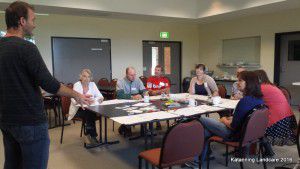
Gardening for Productivity and Biodiversity was a quiet event, with only 8 participants, probably our smallest of all EcoWeek events so far, but that also meant that everyone got a chance to ask questions, and share their own knowledge and experience with local gardening conditions.
Yann’s casual, hands on and informative style, as always, really offered people the opportunity to explore new and familiar ideas and concepts.
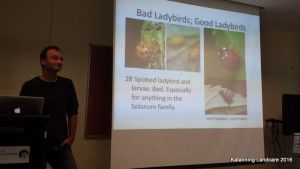
Everyone in the group had so much to offer one another, and perhaps they themselves were surprised by how much they knew and could share. One of my favourite things about the event was the interaction that happened at the end, with the participants sharing their contact details and agreeing to get together, exchange plants and other skills and materials. Such a cool outcome!
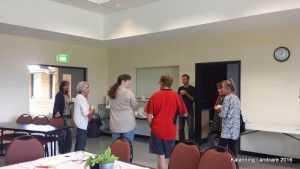
Once again, compost was a winning topic, and the live worm farm was a real eye opener!
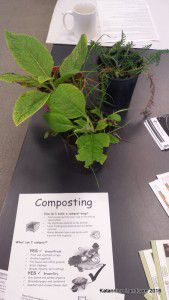
Comfrey and Yarrow, great companions for your compost bin
Using the spy glasses to look at tiger worms up close!
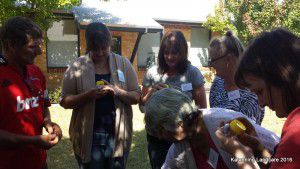
Quickly assembling a commercially available worm farm. Nice and easy!
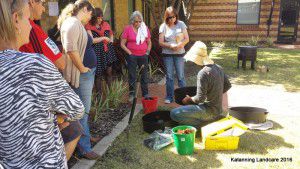
My key take-aways:
- Aim for a zero waste garden – everything goes back into the garden through compost and seed saving. Grow it, and put it back.
- If you take care of the soil, and have healthy plants, you are pretty much going to win against most pests, bugs and diseases. At least you’re starting from the best possible starting point.
- Keep trying, keep experimenting. Put something in, water it, watch it, and if it dies, try again with something else, another time, or another location. Honestly, you can’t *really* do any harm.
- Worms have little tiny teeth and little bitty mouths. They need little pieces of food – in fact, a green leaf smoothie is probably the best food for them.
- Compost is best set up in a large volume all at once, say, once every three months or so, and food scraps managed through chickens and/or worm farms for easier daily management.
- Compost needs way more water than you think. The number one reason your compost fails is that it wasn’t wet enough. Wet it. Then wet it some more. And then again and again.
- Then turn your compost, at least for the first few weeks. Don’t be lazy. Stir it up to get the air in it to make space for the little bacteria that make your compost hot and kill the weed seeds.
What were the key lessons and a-ha moments for you?
 Gardening for Productivity and Biodiversity was a quiet event, with only 8 participants, probably our smallest of all EcoWeek events so far, but that also meant that everyone got a chance to ask questions, and share their own knowledge and experience with local gardening conditions.
Yann’s casual, hands on and informative style, as always, really offered people the opportunity to explore new and familiar ideas and concepts.
Gardening for Productivity and Biodiversity was a quiet event, with only 8 participants, probably our smallest of all EcoWeek events so far, but that also meant that everyone got a chance to ask questions, and share their own knowledge and experience with local gardening conditions.
Yann’s casual, hands on and informative style, as always, really offered people the opportunity to explore new and familiar ideas and concepts.
 Everyone in the group had so much to offer one another, and perhaps they themselves were surprised by how much they knew and could share. One of my favourite things about the event was the interaction that happened at the end, with the participants sharing their contact details and agreeing to get together, exchange plants and other skills and materials. Such a cool outcome!
Everyone in the group had so much to offer one another, and perhaps they themselves were surprised by how much they knew and could share. One of my favourite things about the event was the interaction that happened at the end, with the participants sharing their contact details and agreeing to get together, exchange plants and other skills and materials. Such a cool outcome!
 Once again, compost was a winning topic, and the live worm farm was a real eye opener!
Using the spy glasses to look at tiger worms up close!
Once again, compost was a winning topic, and the live worm farm was a real eye opener!
Using the spy glasses to look at tiger worms up close!
 Quickly assembling a commercially available worm farm. Nice and easy!
Quickly assembling a commercially available worm farm. Nice and easy!



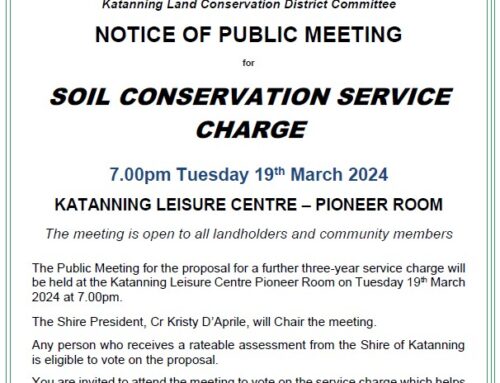

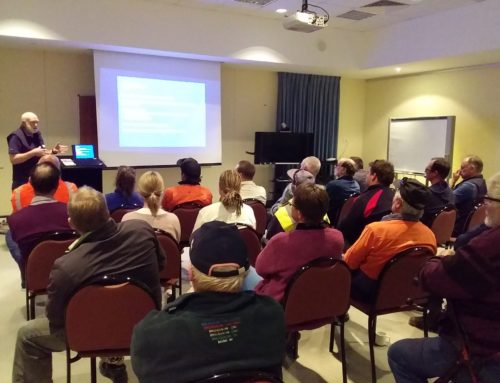
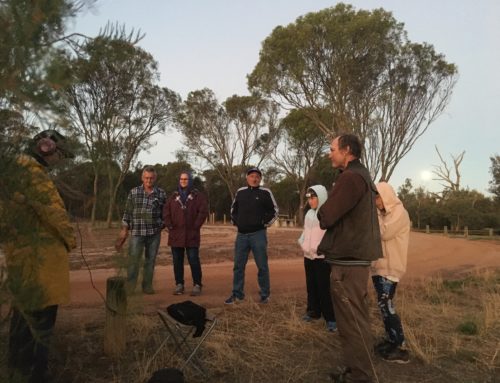

Leave A Comment